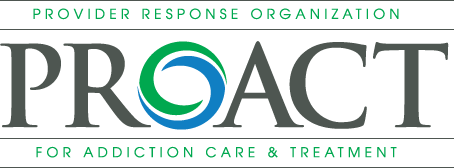The idea of a comprehensive substance use treatment model with wraparound services had shown some promise in various agencies over the years, but such efforts were usually the victim of limited resources and competing priorities, stifling efforts to grow those programs and to meet the changing recovery needs of the individuals they served.
Local health care organizations knew they needed to think outside the box for a treatment model that wouldn’t just work but would coordinate addiction care among Huntington’s two major hospitals, Marshall’s academic health system, the federally qualified health center and other health care providers.
In 2018, following a series of conversations among community stakeholders, new partnerships emerged and local health care organizations united to form what would become a much-needed single point of referral for substance use disorder care and treatment in Huntington.
The Provider Response Organization for Addiction Care & Treatment, or more commonly referred to as PROACT, officially opened its doors at 800 20th St. in Huntington on Oct. 1, 2018. One year later, PROACT has helped more than 1,000 individuals and their families on the path toward recovery and routinely sees more than 400 patients on a weekly basis.
Each element of the PROACT model works in concert with the others to provide a holistic approach to treatment. Services include assessment and referral, both abstinence-based and medication-assisted treatment (MAT) avenues to recovery, individual and group therapy, spiritual care, peer recovery coaching, career placement and social services, and an onsite pharmacy.
Starting out, services at PROACT were limited, but the model is now fully implemented and continues to expand and shift based on need. St. Mary’s Medical Center has been a tremendous partner in bringing non-denominational spiritual care to PROACT patients. A newly formed family support group is helping parents, spouses, siblings and children cope with addiction as a family unit. New career placement services through Marshall Health’s Creating Opportunities for Recovery Employment (CORE) program have onsite career coaches to help patients identify a pathway to employment as they work toward long-term recovery.
Appointments can be scheduled, but walk-ins are encouraged in order to reduce the time between an individual’s initial decision to seek treatment and his or her actual interaction with a treatment provider.
Designed to be a true community resource, PROACT serves the needs of both the public as well as other health care providers. A number of the referrals to PROACT come from Huntington’s Quick Response Team and Project Engage, a program integrated into the emergency departments at Cabell Huntington Hospital and St. Mary’s Medical Center. Additionally, many of our community physicians refer patients they have diagnosed with a substance use disorder and who had previously struggled to find appropriate care.
The PROACT team includes eight clinicians, one chaplain, 11 therapists, one pharmacist, two employment specialists, two family navigators and two patient advocates.
But, the collaboration doesn’t stop there. Huntington has a wealth of social service and workforce development assets. Our team takes every opportunity to connect patients with the appropriate resources to help them find success in their recovery. We also partner with the Cabell-Huntington Health Department to administer HIV and hepatitis C testing at intake. And, PROACT partners with Recovery Point for peer recovery coaching.
PROACT operates as a separate organization with its own board of directors composed of representatives from the partner organizations — Cabell Huntington Hospital, Marshall Health and the Marshall University Joan C. Edwards School of Medicine, St. Mary’s Medical Center, Thomas Health System and Valley Health System. The expertise each partner organization brings to the table is what makes PROACT so unique and what makes it work. It is a true example of what a community can do when it engages in collaborative problem solving.
During the past year, PROACT’s innovative approach to treatment has attracted visits from the director of the Centers for Disease Control & Prevention (CDC), the deputy director of the U.S. Department of Health and Human Services, the deputy director of the Office of National Drug Control Policy (ONDCP) and other state and local delegations. They are always impressed to hear about how Huntington has banded together to bring solutions to the forefront. Additionally, PROACT has been recognized by the Addiction Policy Forum with a 2019 Innovations Now award.
Certainly, PROACT is not the only solution to the addiction crisis, but it has undoubtedly become a major part of Huntington’s road to recovery. We look forward to the impact PROACT will continue to make for individuals, families and our community during its next 12 months.
Michael Haney is director of the Provider Response Organization for Addiction Care and Treatment, or PROACT.
This opinion-editorial was originally published in The Herald-Dispatch on October 28, 2019.
